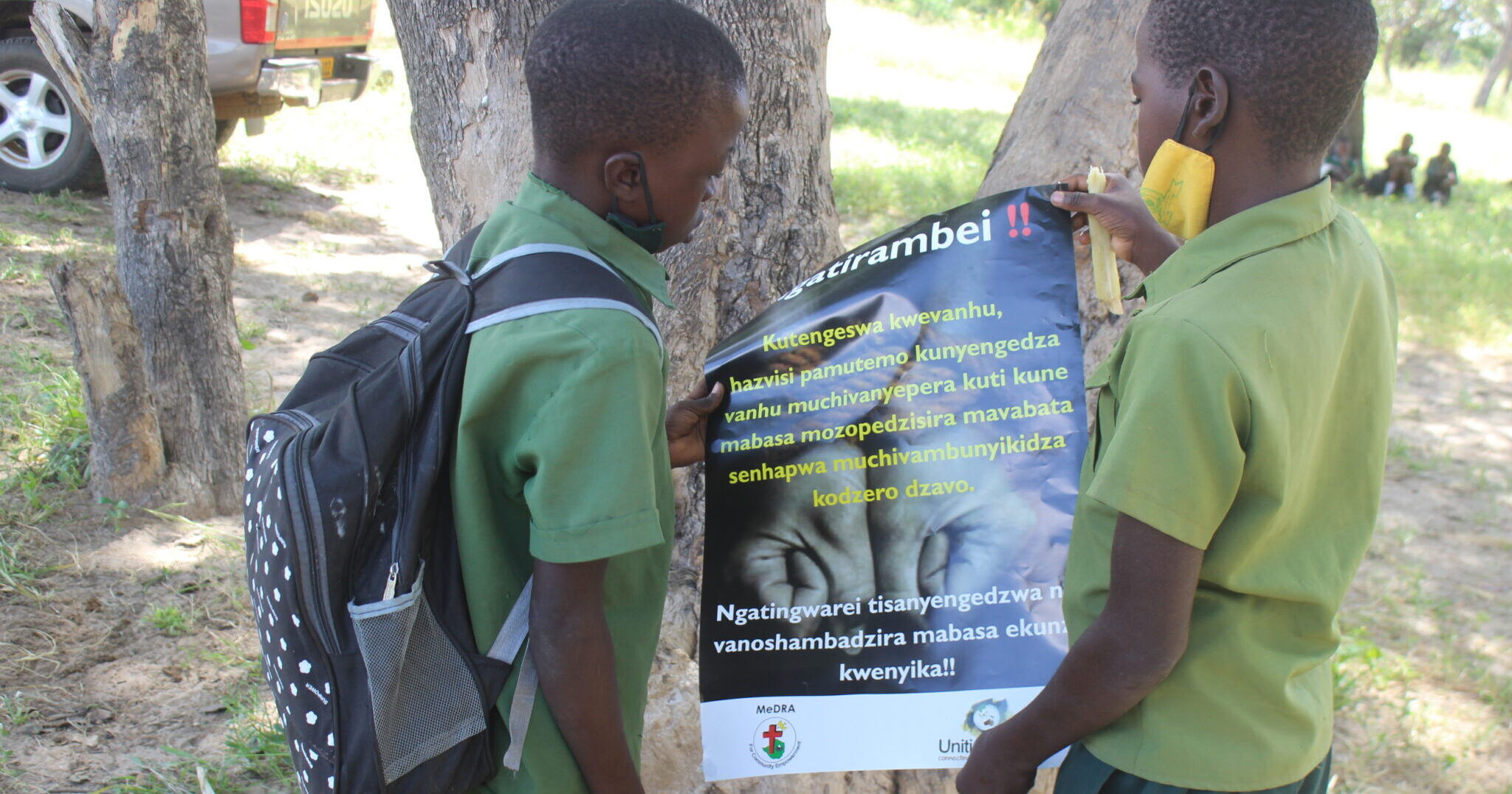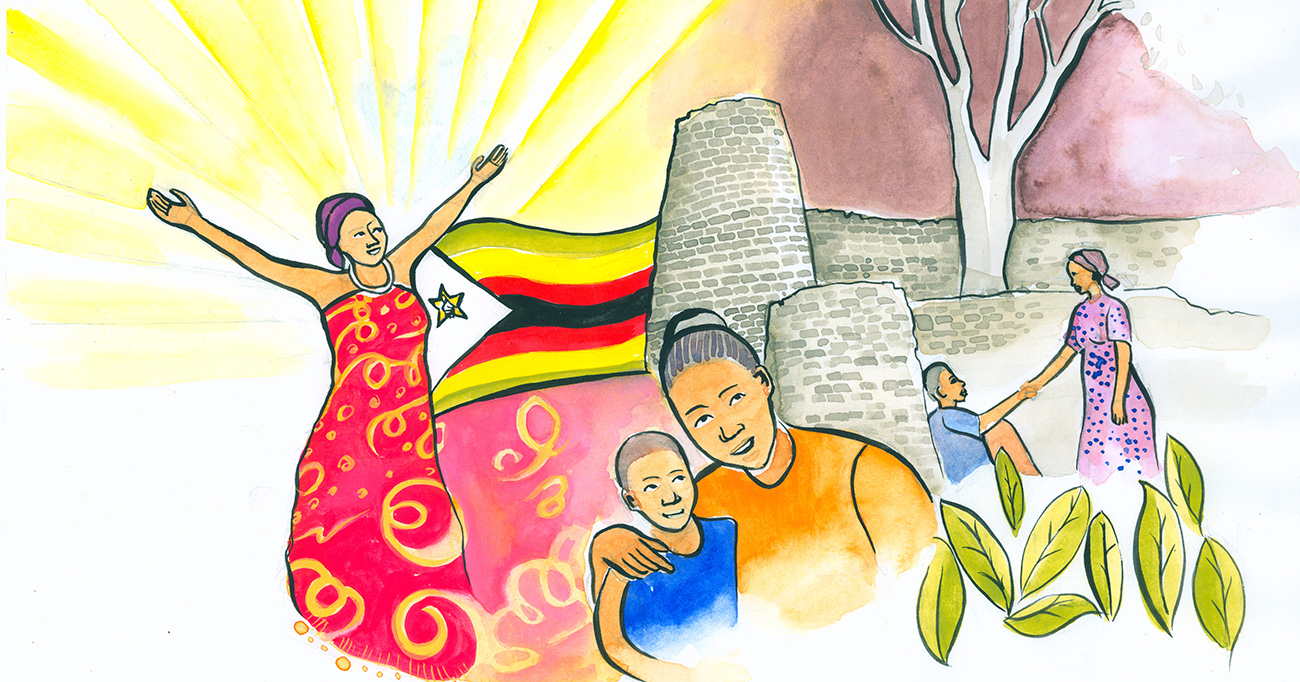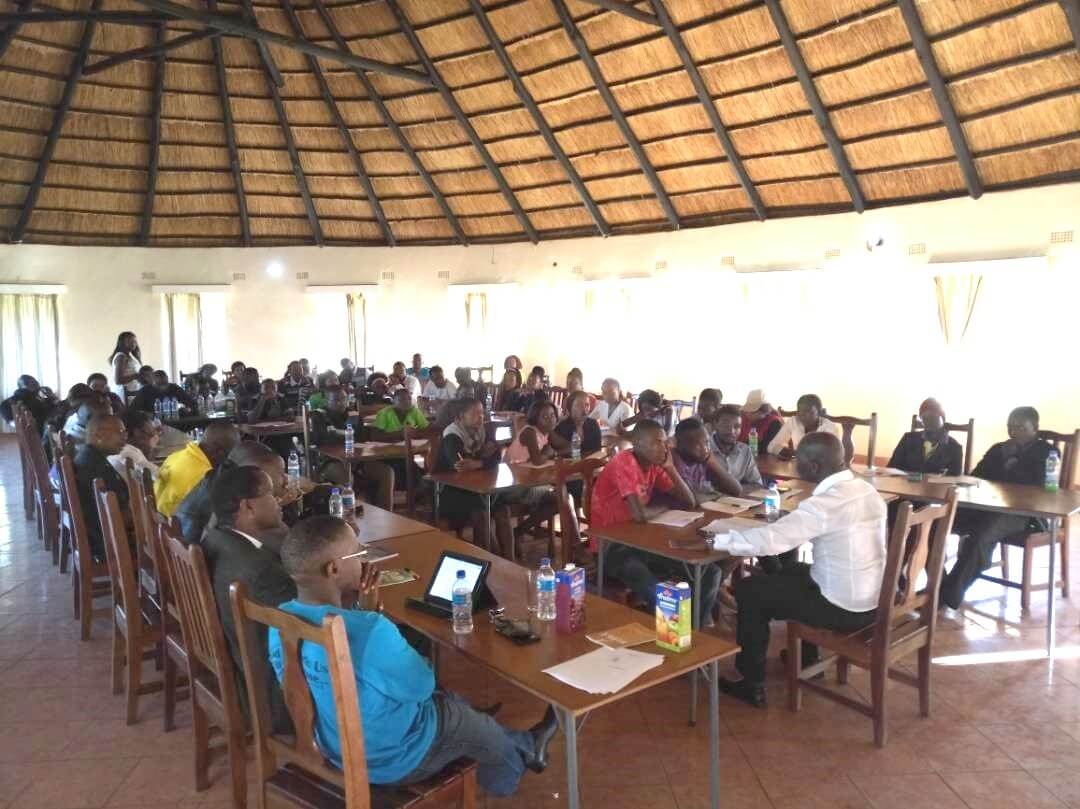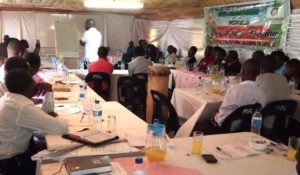Fighting human trafficking in Zimbabwe
The fight to free slaves, incredibly, has a history that stretches back to at least 6ooBCE. But for all the fantastic advances, we still have a long way to go. In 2018, there were 50,000 reported victims of human trafficking from 158 countries. Many, many thousands more cases go un-documented.
Whenever a crisis hits, human traffickers seize the day, and COVID-19 has provided ample cover for exploitation. In Zimbabwe, it’s not uncommon for women and girls to be moved out of the country and trafficked into domestic servitude or sexual exploitation; men and boys, too, are lured far from home to toil in unpaid heavy labour. Children as young as nine-years-old work as nannies, housemaids, and gardeners in urban areas and mining communities; some employers forcing the children to work by withholding wages, denying them access to school, and subjecting them to gender-based violence.
UnitingWorld’s partner the Methodist Church in Zimbabwe is determined to help people recognise and fight the threat. Beginning with their own leadership and then moving to congregations, they’re training people to understand what trafficking looks like in their own communities, where to get help and how to report it. They also work to help communities stand up strong, providing opportunities to generate a living locally and keep their kids in schools close by.
The 2030 Sustainable Development Goals include goals and targets on trafficking in persons. These goals call for an end to human trafficking and all forms of exploitation and violence against women, children and men.
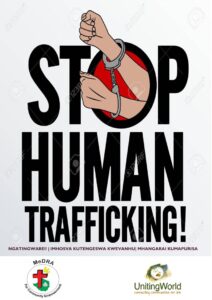
In 2021-22, the Methodist Development and Relief Agency (MeDRA) and the Methodist Church in Zimbabwe (MCZ) will continue to address human trafficking in Zimbabwe as part of the Safety and Inclusion (Leadership) Project supported by UnitingWorld. Over the next year MeDRA and the MCZ plan to achieve the following:
- Church wide inclusion, safeguarding and gender officer appointed
- 50 church leaders and 273 ministers trained on Safeguarding, Disability Inclusion, Human Trafficking, including topics and policies
- New policies and training manual on Safeguarding, Disability Inclusion and Human Trafficking translated to local languages and printed.
- 422 church representatives receive training manual on Safeguarding, Disability Inclusion and Human Trafficking
- IEC materials and bulk messaging on Safeguarding, Disability Inclusion, Human Trafficking, Climate Change and Disaster Risk Management distributed among church leaders, ministers and communities (including videos of church leaders promoting the message to be circulated via Facebook or Whatsapp)
- Continued collaboration between the MCZ and other Wesleyan Church Anti Trafficking Taskforce members
Your gifts help our partners MCZ to do this critical work safeguarding people and communities. Thank you so much for your support!
Photos:
- Header: Boys from a rural community in Gokwe, Zimbabwe taking a look at one of MeDRA’s posters about human trafficking. Photo credit: MeDRA
- In-text: Another poster produced by MeDRA to help raise awareness of human trafficking in rural communities. Photo credit: MeDRA

